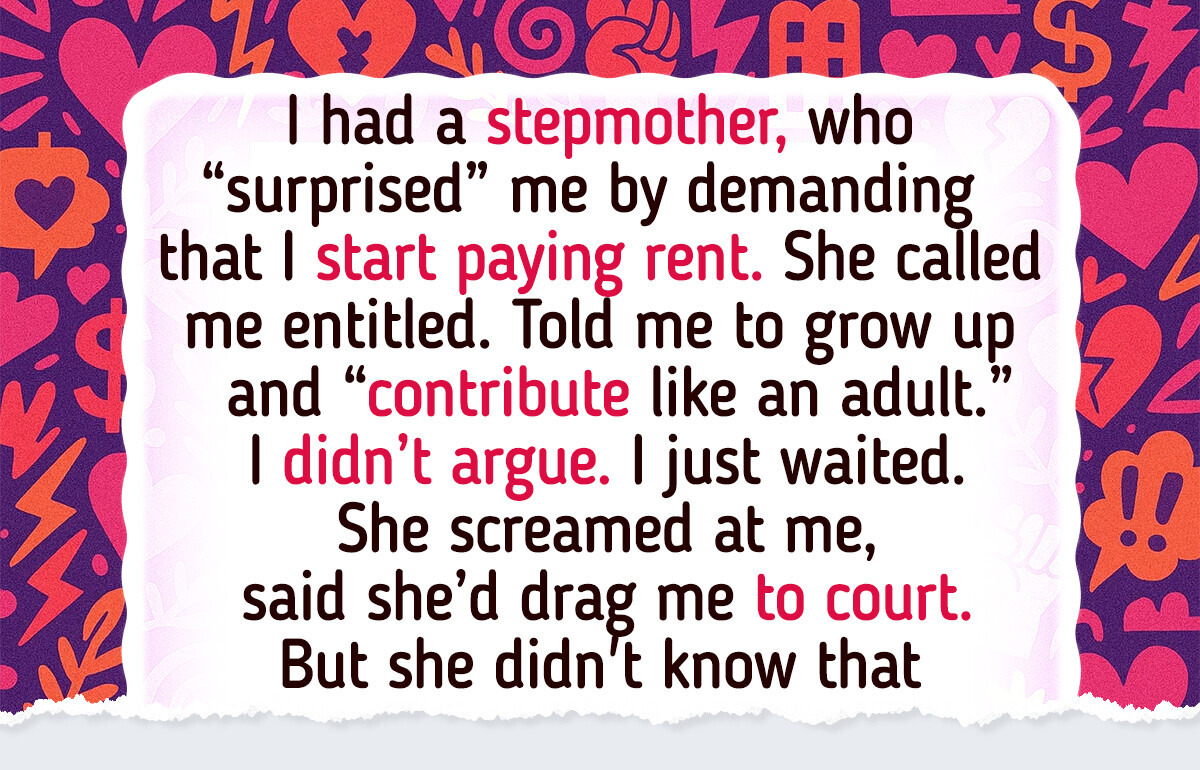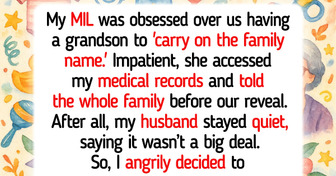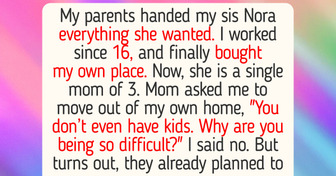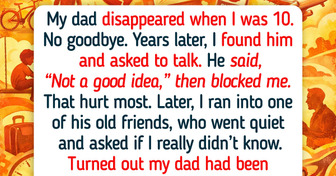I Refuse to Name My Baby After My Mom, and the Truth Is Coming Out


When families blend, things don’t always go as smoothly as planned. Emotions run deep, loyalties get tested, and power struggles often follow. Especially when grief and inheritance come into play, the line between right and wrong can get blurry fast.

Dear Bright Side,
My real mom passed away when I was 13, just 4 months after divorcing my dad. A year later, I had a stepmother, who “surprised” me on my 18th birthday by demanding that I start paying rent.
She called me entitled. Told me to grow up and “contribute like an adult.” I didn’t argue. I just waited. She didn’t know that my mom had left the house to me before she passed away.
It wasn’t something I talked about often. The paperwork took a while to sort out, but I knew the house was mine. I stayed quiet while I waited, and during that time, my stepmother kept pressuring me for rent like she was the landlord.
Once everything was finalized, I told her she wouldn’t be getting a single cent. In fact, she actually owed me. Her face went pale. Then red.
She said I was lying. She screamed at me, said she’d drag me to court. That’s when it clicked. She realized she was the one who’d be dragged.
Because it wasn’t her house. It never was. She’d been bluffing, with no idea the cards were already stacked against her.
She threatened my dad with divorce over it. Said he “let me get away with too much.” He pulled me aside and said he didn’t know what to do anymore, that he was stuck.
I understood. I really did. I wasn’t trying to tear anything down—I just wasn’t going to be pushed out of what was already mine.
Sometimes I wonder if I went too far. But then I remember all the nights I stayed quiet, the names she called me, the way she tried to act like she owned everything.
I didn’t raise my voice. I didn’t make a scene. I just waited and let the truth speak for itself.
Thank you for reaching out. We know how difficult situations like these can be, so we put together a few tips that might help.

Whether it’s property, inheritance, or living arrangements, understanding your legal standing can help you stay grounded during emotional conflicts.

In situations involving shared spaces or family disputes, having paperwork to back your claims can make all the difference.

Reacting with patience and strategy often has more impact than shouting matches. Sometimes, silence speaks louder than words.

It’s possible to understand someone else’s pain without letting them trample your boundaries. You can feel for them without giving up what’s rightfully yours.
In complicated family dynamics, the real story often hides beneath the surface—between grief, power, and the past. Setting boundaries doesn’t always feel good, but it’s often necessary. Especially when the people we live with forget that respect is a two-way street.











